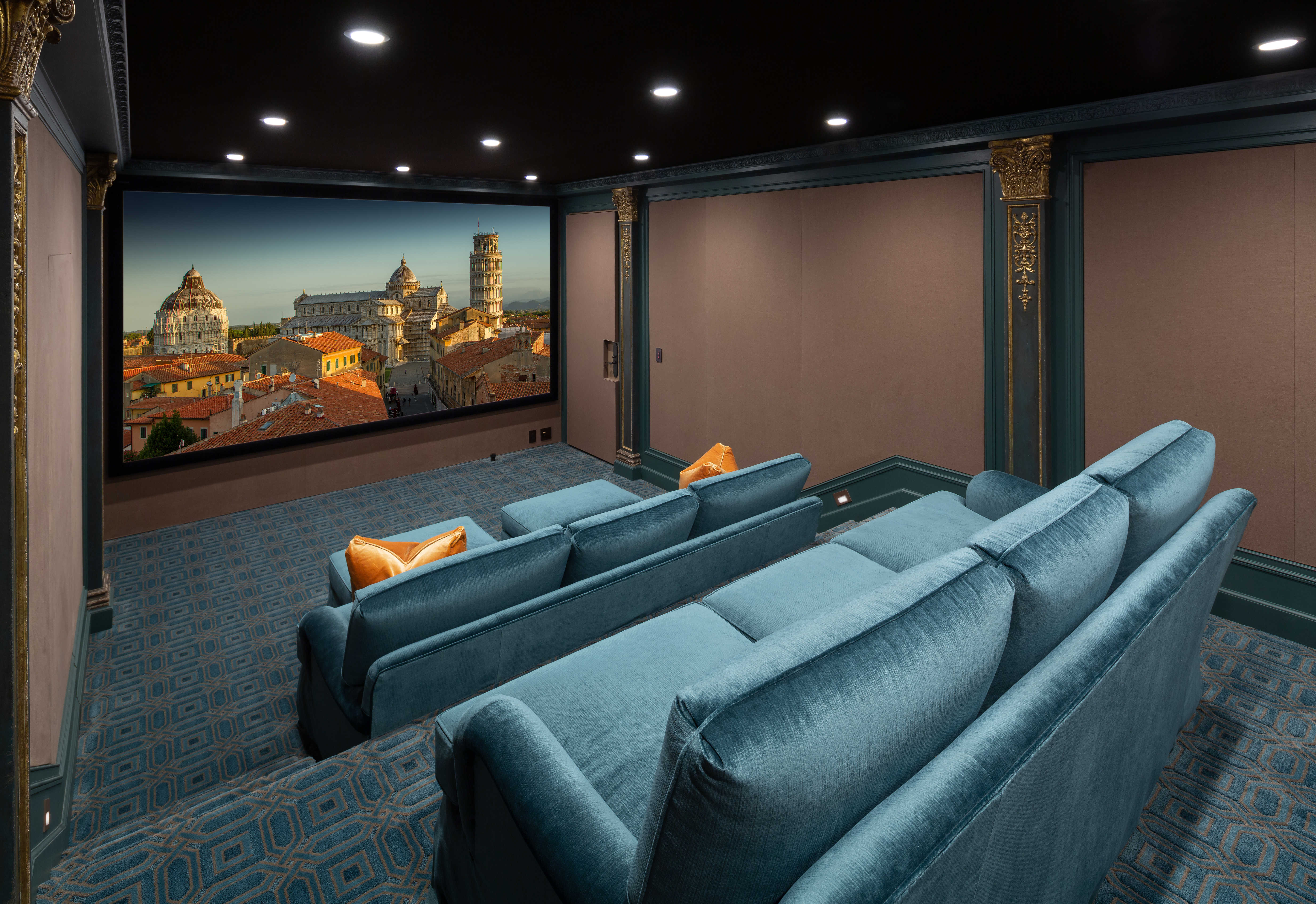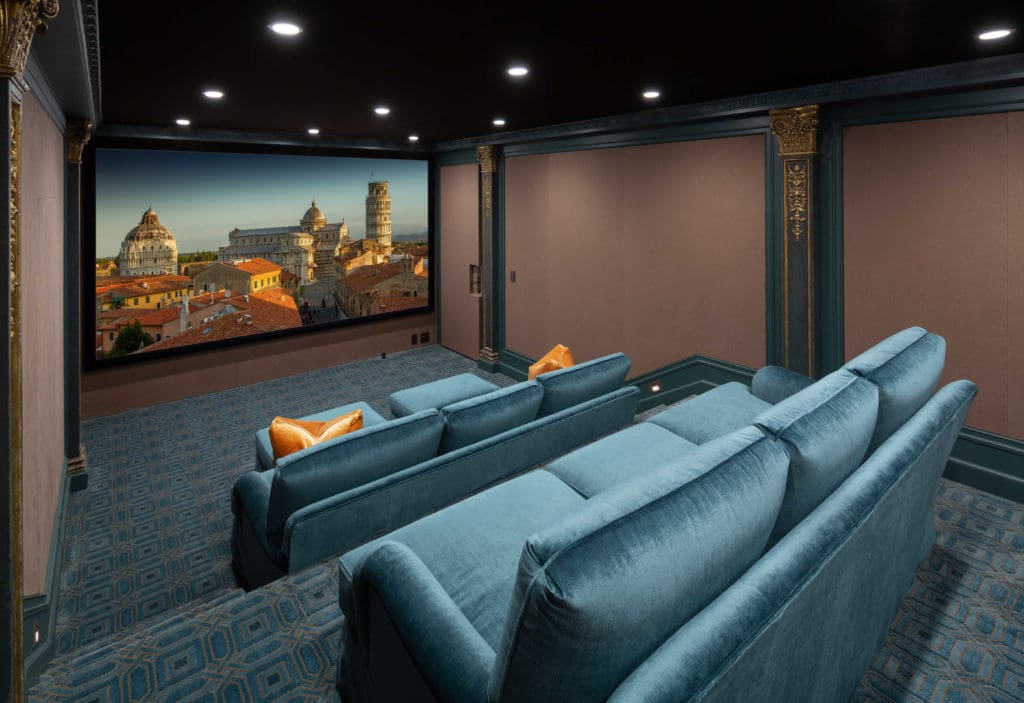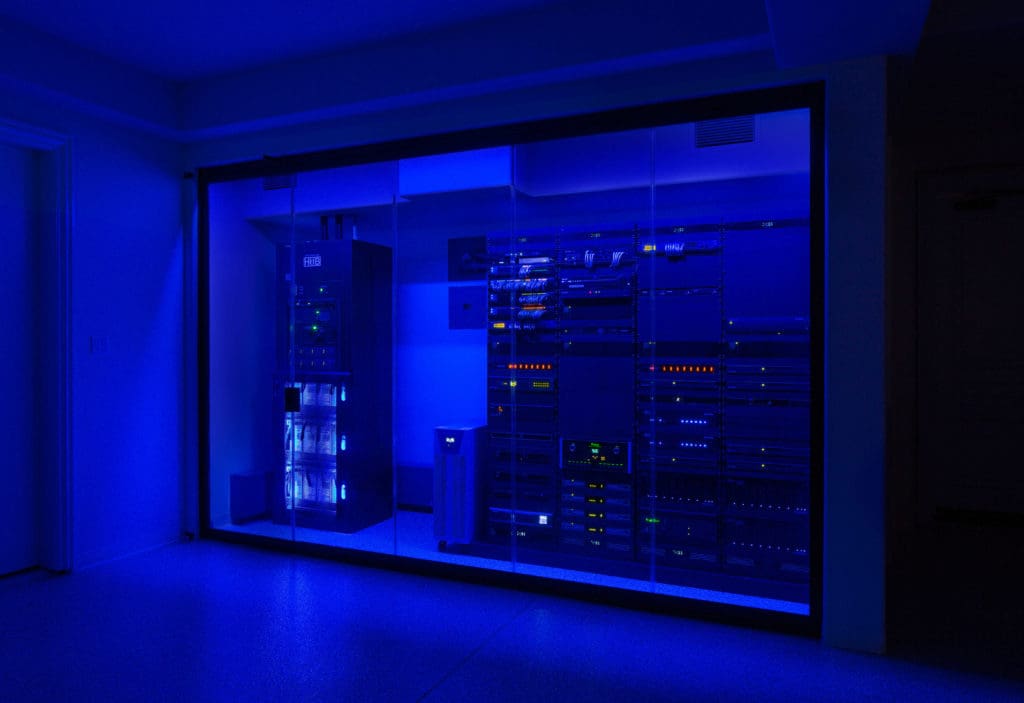In the wake of the 2008-2009 economic recession, residential AV integrators who suddenly found most homeowners unwilling or unable to spend money on technology in their homes turned en masse to the commercial AV world, where there was more than enough work to go around.
Amidst the coronavirus pandemic, commercial AV companies now find themselves looking longingly at the residential market, where more people are upgrading their AV to help them manage their work-from-home lives and the fact their kids are going to school from their couches.
Let’s call them resimercial integrators–companies that are adept at both residential and commercial AV.
Giles Sutton, interim CEO and senior VP of member success and sales of CEDIA, calls the transformation “a natural evolution” and says many CEDIA members were already dipping their toes in commercial AV and the reverse is true of AVIXA members doing jobs on the residential side.
“It’s more looking at residential as a primary focus at the moment,” he says, highlighting the idea of bringing videoconferencing into the residential space and bulking up the IT infrastructure needed to deliver the additional content people need in their homes to work and go to school these days.
“The benefit right now is it’s not the same amount of work (as pre-pandemic),” says Sutton. “All the reports we see show this has been a really successful year for our channel. Business is booming and there’s enough work for everyone in this space right now, particularly in North America.
Related: Former AVIXA Exec Jason McGraw to Head CEDIA Expo, Kitchen and Bath Industry Show
“There’s a lot of movement in the property market and that we know impacts our industry. The more people to a new home, the more people who are going to remodel them and want to install more technology,” he says.
“People are changing the way they view their homes,” says Sutton. “They’re zoning them they can work from home alongside children that can be home-schooled. With that comes a greater technology requirement.
“Any market is going to be nervous of competition, but there’s definitely no concern about a shortage of work at the moment. The industry is pretty robust and has weathered the storm of the pandemic. If anything, this focus on new trends brings great opportunity for commercial integrators,” he says.
Resimercial Integrators Are Here to Stay
Sutton sees the trend of commercial AV companies on residential jobs and vice versa as one with some staying power.
“I think it’s here to stay for a while,” he says. “From what we understand from large corporations, there’s going to be more a hybrid approach to work, but there’s opportunity in a lot of areas.” That includes boutique hotels and multi-dwelling unit (MDU) developments.
Boutique hotels represent “an area that falls between pro and residential,” says Sutton, because It relies on a “more design-orientated approach to technology.”
MDUs have typically involved both residential (apartments) and commercial integrators (access control, infrastructure), says Sutton.
‘You have to have a very large workforce to be able to carry out this work, but increasingly smaller companies are able to get into this market through this new model,” he says.
There are, of course, difference in working on residential and commercial AV projects, says Sutton, who has experience as a resimercial integrator himself.
“It’s very different when client is so deeply invested because it’s their home,” he says. “The considerations around ensuring you’re there at times that’s respectful to the people living there and being available on off hours.
“In normal times, people are home at night and during the weekend. It’s a little more manageable in a corporate setting when they’re not there at those times. They don’t always have ducting and ceiling tiles in their homes. A lot of that has to be thought through at the start of the project,” says Sutton.
“The core technical skills are very transferrable,” he says. “It’s just related to the consideration of the homeowner.”
Sutton expects we’ll see much more robust IT networks in future residential AV installations because commercial integrators understand its importance and are bringing that mentality with them into people’s homes.
“The pandemic has proven homeowners need something a little bit more robust to handle all the demands put on their networks,” he says. “That’s a fantastic skill to be brought over.”
“We need to recognize there is overlap,” says Sutton. “I don’t see it as us as a group moving into a new area. I just see it as a refocusing or prioritizing more on the residential side. CEDIA members are already doing both and the same goes for AVIXA members as well.
“It’s just about responding to the demand right now. As long as the work is being carried out professionally to a high standard and addressing the customers’ requirements, that’s the most important thing,” he says.












